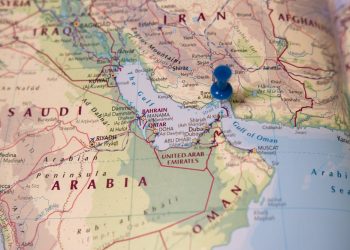The way in which shipping carries out risk assessments is well established. But does it adequately assess the human element, wonders Alvin Forster, Loss Prevention Executive, North P&I Club.
Risk assessments are a fundamental part of safety management. Despite often being seen as a hindrance to ‘proper’ work or being too long-winded and bureaucratic, when done properly by people who understand risk, they are an invaluable tool in safe working on board vessels.
But the process for risk assessments is often limited to considering only the physical elements of the task in hand. Should we now pay more attention to human performance and how this impacts the overarching risk?
The traditional risk assessment process
The process follows a well-trodden path. But it’s useful to revisit this, as we can lose sight of what risk assessments really mean. Some risk assessment processes can become over-complicated. Also, crew may be over-reliant on generic risk assessments without appreciating they are the starting point. There is also the danger that the process becomes centralised and the crew on board become detached from the process.
Think: What is the job in hand? What can go wrong? This is the hazard. A hazard is something that can cause you, others, or the vessel harm
Think: What is the likelihood of it going wrong?
Think: If it does go wrong, how harmful could it be to me, others, or the vessel?
Think: What can I do about this? How can I prevent it or make it less harmful?
Think: Is it now safe to do the job? Is the risk now acceptable?
A high chance of something bad happening coupled with a high level of harm would clearly be an unacceptable risk. Something will have to be done. The steps taken to lower the risk are commonly referred to as control measures and can be used to form the basis of a work procedure or job checklist.
It’s important to get these control measures right and ensure that they are reasonable and practical. The cost and manpower needed should be proportional to the benefit they bring. If they’re over the top, then crew are likely to work around them just to get the job done, potentially resulting in the job becoming more dangerous.
Bringing in the human element
Quite often, the last thing we want is for someone to introduce an additional step to a process. It screams “more work” or “more paperwork”, but this is a simple question to be asked during the risk assessment process:
Think: How could my performance or condition increase the risk?
We already consider someone’s competency when carrying out a risk assessment (i.e., whether they are trained to do the task), but this process now introduces the influence of human performance. When we consider the much-repeated claim that ‘human error’ is behind the vast majority of injuries and incidents, then why isn’t this introduced at the risk assessment phase?
When things go wrong, and it is attributed (rightly or wrongly) to ‘human error’, it often involves a ‘fault’ in someone’s decision making. The question must be asked: “Why did that particular decision make sense to them at that time?”. A person’s decision-making process is strongly influenced by many factors, some relating to their physical and mental condition at that time. If these human performance factors are considered before carrying out the task, it creates the opportunity to do something about it and reduce the risk.
Let’s strip this back to basics. Everyone carries out risk assessments all the time without even knowing it. Crossing the road? You assess the risk and then you decide how, where and when it is safe to cross.
Now think about your condition or state of mind. Are you tired and sluggish? Are you in a hurry? Are you under stress and distracted?
This affects your risk assessment for crossing the road – you recognise how your state of mind or performance could impact a safe crossing and you alter your actions to suit.
Following this simple process can help anyone assess the risk when planning a task or when circumstances change in the middle of carrying out a task.
Learning from other industries
Although not directly related to task risk assessments, airline pilots use a simple system to make them think about their condition prior to flying. This helps them assess whether their performance could be affected, which in turn could impact the safe operation of the craft.
The mnemonic used is I’M SAFE:
- I – Illness (am I well?)
- M – Medication (am I taking any medication that could affect me?)
- S – Stress (am I feeling stressed or under pressure?)
- A – Alcohol (when did I last drink?)
- F – Fatigue (am I rested?)
- E – Eating (have I had the right nutrition?) or Emotion (is my head in the right place?)
Drill down into best practice
The offshore drilling industry also takes a progressive approach to work planning and risk assessments. Erik Roesen Larsen, VP and Head of HSSE at Maersk Drilling advised us that when planning a task in advance, they don’t just assess the technical and operational aspects, they also consider the organisational factors, which encompasses the human factors.
Mr Larsen told us: “All too often fatigue, energy level, mental status etc., are being under evaluated – and to help us talk about that we use something called the full engagement model”. This means that a person’s physical, mental and emotional conditions are all considered when assessing the risks associated with carrying out a job.
The views presented hereabove are only those of the author and not necessarily those of SAFETY4SEA and are for information sharing and discussion purposes only.































































